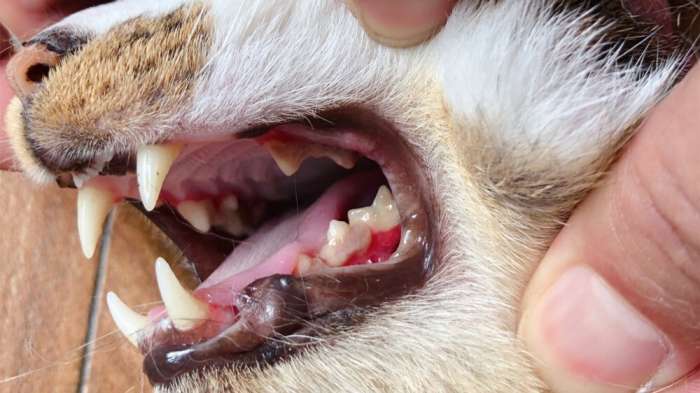Feline stomatitis is a painful inflammatory condition affecting a cat’s mouth, leading to significant discomfort and health issues if left untreated. Understanding the symptoms and the appropriate medications is crucial for pet owners to ensure their feline friends receive the necessary care. This article will delve into the symptoms of feline stomatitis and the recommended treatments to alleviate the condition.

1. What Is Feline Stomatitis?
Understanding Feline Stomatitis
Feline stomatitis is characterized by inflammation of the oral mucosa, often affecting the gums and soft tissues of the mouth. This condition can be quite severe, causing pain and difficulty in eating.
Causes of Feline Stomatitis
- Dental Disease: The most common cause is underlying dental issues, such as periodontal disease.
- Viral Infections: Viruses like Feline Immunodeficiency Virus (FIV) or Feline Leukemia Virus (FeLV) can contribute to the condition.
- Autoimmune Diseases: Certain immune responses may lead to chronic inflammation in the mouth.
2. Symptoms of Feline Stomatitis
Recognizing the Signs
Being aware of the symptoms is key to prompt diagnosis and treatment:
- Bad Breath: One of the earliest signs of stomatitis is persistent bad breath (halitosis).
- Inflammation and Redness: Swelling and redness of the gums and mouth lining.
- Painful Eating: Reluctance to eat or difficulty chewing food due to pain.
- Drooling: Excessive saliva production may occur, often accompanied by difficulty swallowing.
- Weight Loss: Prolonged discomfort can lead to a noticeable decrease in appetite and weight loss.
- Behavioral Changes: Increased irritability or withdrawal from social interaction.
3. Diagnosing Feline Stomatitis
Veterinary Examination
If you notice any of the above symptoms, a veterinary visit is essential:
- Oral Examination: A thorough examination of the mouth will help identify signs of inflammation, lesions, or other dental problems.
- Blood Tests: These may be performed to rule out underlying systemic diseases or infections.
- Dental X-rays: X-rays can help assess the health of the teeth and jawbone, identifying any hidden issues.
4. Medications for Feline Stomatitis
Types of Medications
Treatment for feline stomatitis often involves a combination of medications to manage pain, inflammation, and infection:
- Anti-Inflammatory Drugs: Non-steroidal anti-inflammatory drugs (NSAIDs) like meloxicam or carprofen can help reduce inflammation and pain.
- Antibiotics: If there’s a bacterial infection, your veterinarian may prescribe antibiotics such as amoxicillin to help manage the infection.
- Steroids: Corticosteroids may be used for severe inflammation; however, they must be prescribed with caution due to potential side effects.
- Pain Relievers: Additional pain management may be necessary, especially for cats that experience significant discomfort.
Natural Remedies and Supplements
- Omega-3 Fatty Acids: These can help reduce inflammation and improve overall oral health.
- Probiotics: Supporting gut health may enhance the immune response, helping to manage stomatitis.
5. At-Home Care for Cats with Stomatitis
Home Management Strategies
In addition to medications, at-home care is crucial for recovery:
- Soft Diet: Providing a soft food diet can ease eating and reduce discomfort. Consider wet food or soaking dry kibble in water.
- Regular Oral Hygiene: Gentle brushing of the teeth and gums can help maintain oral hygiene. Use toothpaste designed for cats.
- Hydration: Ensure your cat has access to fresh water at all times, as hydration is essential for recovery.
6. Preventing Feline Stomatitis
Preventative Measures
While not all cases of stomatitis can be prevented, certain practices can help minimize the risk:
- Routine Dental Check-ups: Regular veterinary dental exams can help catch dental issues early, reducing the risk of stomatitis.
- Dental Care at Home: Incorporate regular brushing and dental treats into your cat’s routine to promote oral health.
- Vaccination: Keep vaccinations up to date to prevent viral infections that can contribute to stomatitis.
7. When to Seek Veterinary Help
Recognizing Serious Symptoms
If your cat shows any severe symptoms, it’s essential to seek veterinary care immediately:
- Severe Weight Loss: Noticeable and rapid weight loss is a cause for concern.
- Persistent Pain: If your cat is unable to eat or shows signs of severe pain, seek veterinary assistance.
- Behavioral Changes: If your cat becomes increasingly withdrawn or aggressive, a veterinary evaluation is warranted.
8. Conclusion
Feline stomatitis is a painful condition that can severely impact your cat’s quality of life. Recognizing the symptoms early and seeking veterinary care is essential for effective treatment. With the right medications and home care strategies, you can help alleviate your cat’s discomfort and prevent future occurrences. Always consult with your veterinarian for personalized treatment options tailored to your cat’s specific needs.

Comments (0)